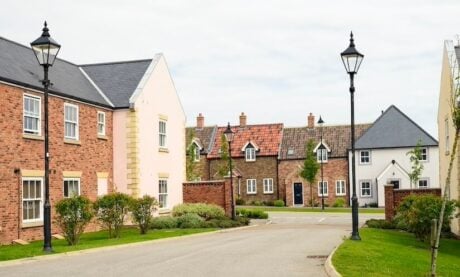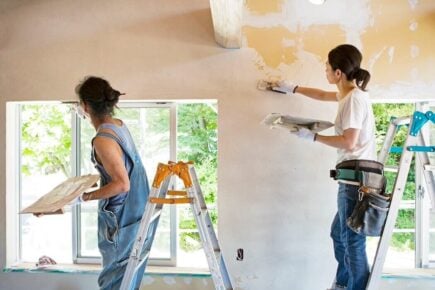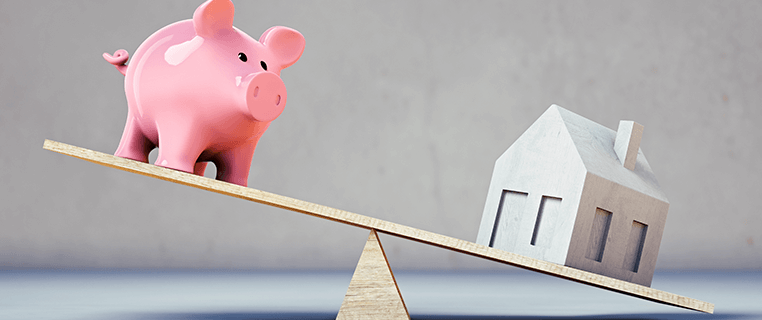Many or all of the products and brands we promote and feature including our ‘Partner Spotlights’ are from our partners who compensate us. However, this does not influence our editorial opinion found in articles, reviews and our ‘Best’ tables. Our opinion is our own. Read more on our methodology here.
No matter how hard you try to save for that all important mortgage deposit, sometimes it’s still a stretch to pull together the five or ten per cent required as a minimum deposit for most mortgage lenders. So, are there options available for those who don’t have a deposit but still want to get on the property ladder?
Think carefully before securing other debts against your home. Your home may be repossessed if you do not keep up repayments on a loan or any other debt secured on it
Can I get a mortgage with no deposit?
In a nutshell, mortgages with no deposit might be available. It may be possible to find lenders who will offer a 100 per cent mortgage, but they will require additional security and it’s important to realise they can be difficult to achieve. Although this area of the mortgage market is both limited and unlikely to offer the best value in terms of interest rates, depending on your circumstances it might still be the way to go.
As with any mortgage decision, the best place to start is in researching the market carefully and gaining an understanding of the possibilities.
Understanding what mortgage deposits actually are could help you when finding a mortgage. Essentially, they are lump sum payments that represent a certain percentage of your property’s value.
Depending on the size of your deposit, your interest rates and monthly mortgage repayments will vary. Generally, the bigger the initial deposit you put down, the better the mortgage deal you’ll get from a lender and the lower the overall amount you’ll end up paying to purchase your property.
There is no standard amount that home buyers must put down as a minimum on a deposit, but you will generally find that 5% is the standard amount but the more you offer, the better the interest rates. As with all things property, it’s a balancing act of weighing up your options and your financial circumstances to gauge your ability to raise the initial capital and pay the monthly mortgage repayments.
» MORE: Check the latest mortgage rates
100% mortgages
It might be possible to get a 100 per cent mortgage, but they come with a number of restrictions and requirements. The 100 per cent mortgages of the past were very similar to regular mortgages and led to a vast number of borrowers finding themselves in negative equity, meaning that their home was worth less than the amount they borrowed from their lender.
Lenders are now far more cautious about lending mortgages to those without deposits. However, if you have a close friend or family member who owns a home and is willing to allow you to use their property equity or savings as security for a period of time, you might still be able to obtain a mortgage with no actual cash deposit.
Types of 100% mortgage
- Family deposit mortgage: This involves a family member putting cash to the value of 5 or 10 per cent of the property in a special savings account for a set period of time. If the borrower then meets repayment conditions over that period of time, the money goes back to the family member. However, the cash is used to cover any missed repayments etc.
- Family link mortgage: This type of mortgage involves a borrower taking out a mortgage worth, say, 90 per cent of a property and borrowing the remaining 10 per cent against a family member’s property.
- Guarantor mortgage: A guarantor mortgage is when a family member or close friend signs a contract pledging to cover the costs of your mortgage in the event that you can’t make repayments.
In the worst cases, these mortgages could lead to the repossession of your own and a family member’s home if you fall too far behind on your repayments.
However, these mortgages don’t mean they will own a share of your property. They simply mean that they will be obliged to make your repayments in some form if you should fall behind.
New build developer loans
Property developers sometimes offer loans to buyers to cover the cost of a deposit for a new build property. Essentially, this means you will have the loan repayments to make as well as your usual mortgage repayments.
For example, the developer could lend you 15 per cent of the property’s value as a loan for the deposit with the condition that you pay it back over 15 years in addition to the mortgage repayments.
Small deposit options
There are some available options that allow you to buy a property with a small deposit:
- Lifetime ISA: A tax-free savings or investments account, a Lifetime ISA offers a 25 per cent government bonus for people under 40 looking to save for a home or retirement.
- Shared ownership: With shared ownership you buy a share of a property from a housing association using a deposit and a mortgage, and pay rent to cover the remaining share.
- Buy a house with friends or family: Share the ownership of a property with a sibling, partner or close friend.
- Ask a family member for a loan: A loan from a trusted friend or family member could be the best way to get on the property ladder. An informal loan structure can also be set up to give structure to your repayments.
» MORE: 6 tips for buying a house with a friend
How can I raise a small deposit?
Sometimes finding ways to pull together a small deposit is a better option than going after a no-deposit mortgage, even if it takes extra time and sacrifice. The best way to raise a deposit is to start early. Try saving as much as possible, as soon as possible. If you have some flexibility before you actually need to get your mortgage, figure out a way to save a portion of your monthly earnings in a mortgage fund.
Alternatively, you could consider options that are outside of the box. Moving in with parents for instance could be an easy way to boost your saving potential. Or you could try reducing your expenditure, selling a car or other valuable asset, or sharing a flat with a friend.
» MORE: How much deposit do I need?
Is a large deposit better than a small deposit?
Generally, the larger your deposit, the more advantages you will have when it comes to securing a favourable mortgage deal with a lender. This is because you will be taking a greater share of the financial responsibility for the property thereby reducing their risk exposure to market movements. The result for you is a greater chance of acceptance when making mortgage applications and a better selection of deals.
Weighing up your options
Having the money for a mortgage deposit is the first big hurdle for first time buyers. While this is a difficult stage, it is worth considering all your options. Try to factor in the possibility of saving for a longer period to pull together a deposit before choosing a no deposit mortgage.
If you have settled on getting on the property ladder as soon as possible without a deposit, make sure you factor in the long-term impact that interest rates, lending charges and monthly repayments will have in addition to any other loans or securities involved in the process.
» MORE: First-time buyer mortgages
Dive even deeper

UK House Prices April 2024
House prices are changing all the time. So whether you’re moving home or buying for the first time, it’s a smart move to keep on top of the latest UK house price data, trends and housing market forecasts.

How to Remortgage to Consolidate Debt
Remortgaging to consolidate debt involves borrowing more on your mortgage to pay off other debts. This can make it easier to manage debt and could help lower your combined monthly debt repayments. However, more debt is secured against your home and you could end up paying more interest overall.

How to Remortgage to Pay for Home Improvements
Remortgaging to pay for home improvements or an extension may be an option if you have sufficient equity in your property and can prove to your lender a larger mortgage is affordable. Your income, outgoings and job status are some of the factors typically looked at when deciding whether you can afford a mortgage.


